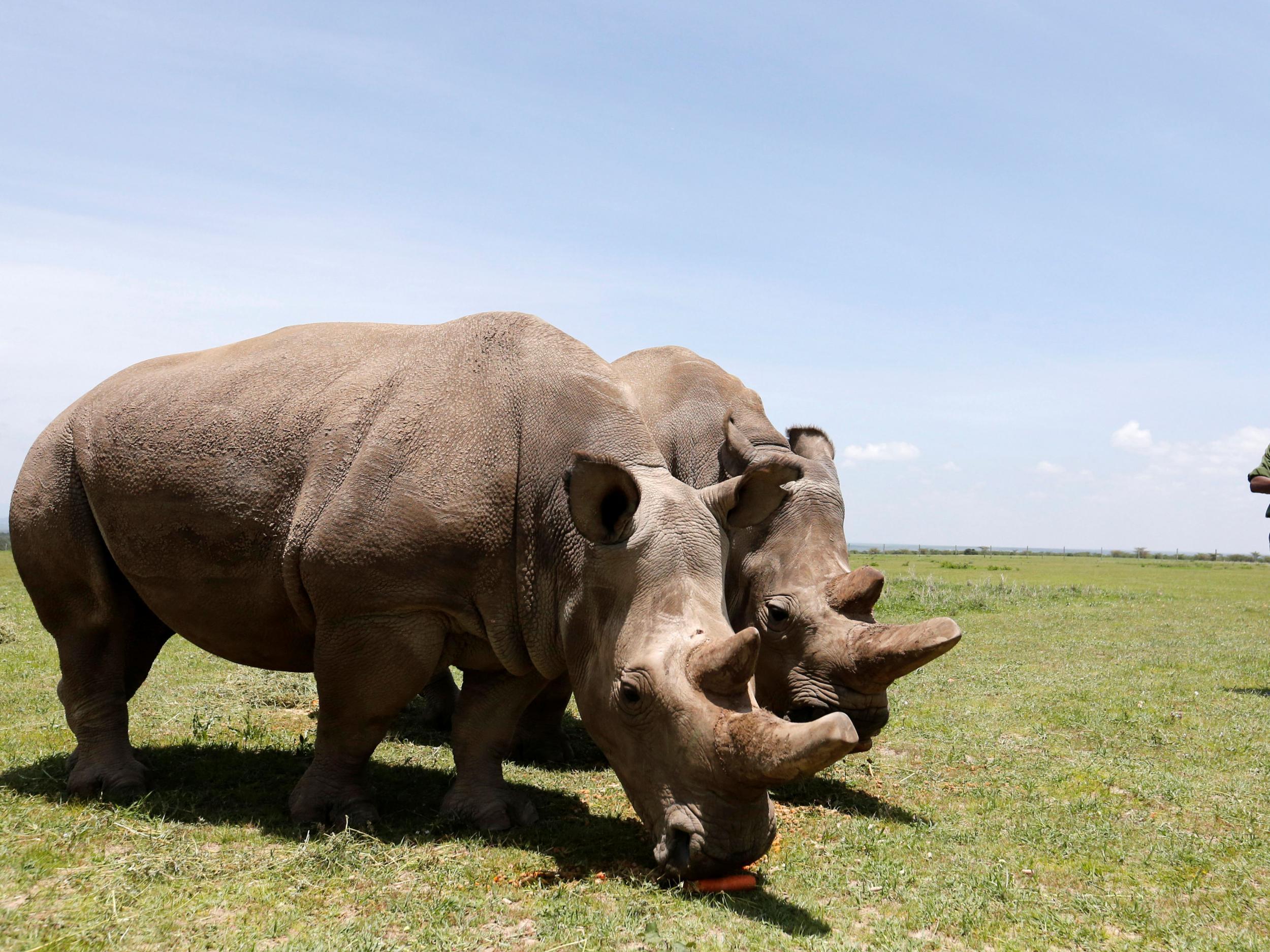Life sentence for ivory possession after death of last male white rhino, Kenya minister urges
East African nation hd 20,000 rhinos in the 1970s, now it has only 650

Your support helps us to tell the story
From reproductive rights to climate change to Big Tech, The Independent is on the ground when the story is developing. Whether it's investigating the financials of Elon Musk's pro-Trump PAC or producing our latest documentary, 'The A Word', which shines a light on the American women fighting for reproductive rights, we know how important it is to parse out the facts from the messaging.
At such a critical moment in US history, we need reporters on the ground. Your donation allows us to keep sending journalists to speak to both sides of the story.
The Independent is trusted by Americans across the entire political spectrum. And unlike many other quality news outlets, we choose not to lock Americans out of our reporting and analysis with paywalls. We believe quality journalism should be available to everyone, paid for by those who can afford it.
Your support makes all the difference.The death of the world’s last male northern white rhinoceros has led a Kenyan government official to declare anyone caught possessing ivory should be sentenced to life in prison.
“Ivory belongs to elephants and rhinos,” said Najib Balala, the country’s tourism minister, during a memorial service held at Ol Pejeta Conservancy on Saturday for Sudan, the 45-year-old rhino, who died 11 days ago.
Wildlife officials at Ol Pejeta, about 155 miles north of Nairobi, put down the rhino on March 19 because of rapid deterioration in his health.
Sudan is survived by the last two females of his species, his 27-year-old daughter Najin and 17-year-old granddaughter Fatu. The only hope for preserving their species is through in vitro fertilization using their eggs and stored semen, according to Ol Pejeta.
Thousand of southern white rhinos still roam sub-Saharan Africa, but decades of rampant poaching have drastically cut the number of northern whites. Poachers could sell northern white rhino horns for $50,000 per kilo, making them more valuable than gold.
Kenya had 20,000 rhinos in the 1970s, falling to 400 in the 1990s. It now has 650, almost all of them black rhinos.
“We are going to change our laws so that anyone caught with ivory will be jailed for life,” Balala said.
Kenya introduced tough wildlife-protection laws in 2013 in an attempt to stop highly lucrative ivory smuggling, mainly to Asia, which has led to the slaughter of thousands of rare and endangered animals.
Those found guilty of ivory trafficking already face a life sentence. But the minimum sentence for possessing it is just five years.
After a court sentenced a Kenyan man to 20 years in jail for possessing ivory, the top prosecutor sought for the punishment to be changed to a life sentenced. The convicted man’s appeal is still in the courts.
The slaughter of endangered animals in Africa for profit continues, but there is ever greater awareness of the bloody cost of ivory, and more international action to stop the trade.
In a move with major implications for the illegal wildlife trade from Africa, China banned ivory sales in December. The country is the world’s largest importer and end user of elephant tusks.
Reuters
Join our commenting forum
Join thought-provoking conversations, follow other Independent readers and see their replies
Comments